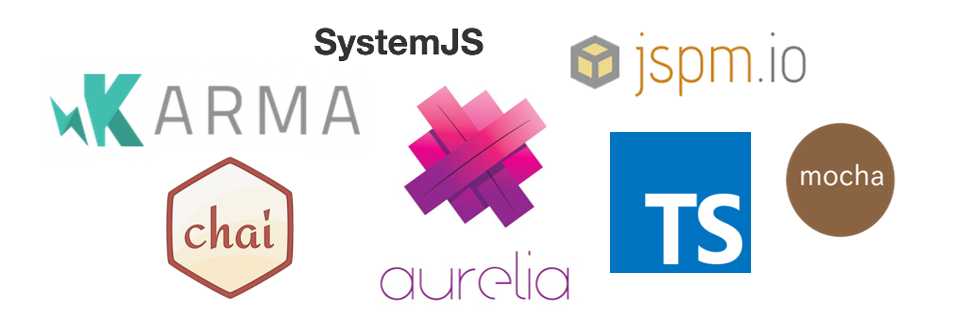I’m relatively new to setting up unit testing for a javascript project, so when I set out to start adding it to an existing project I obviously turned straight to google.
After a bit of searching I settled on using Karma, Mocha and Chai.
As you’d expect, I found loads of information about unit testing javascript and typescript, and how to use mocha and karma etc, but struggled to get it to work with my project configuration.
I was using a combination of Karma, Mocha and Chai, Typescript, SystemJS and Aurelia, and I struggled to find much information about this specific setup.
I persevered and finally managed to get it to work, so wanted to write down what I did for anyone else who finds themselves in the same boat.
Aurelia Skeleton Project
I’m starting with a basic Aurelia project (using Typescript and SystemJS) that I created quite quickly from scratch. You can see how I did that here… Creating an Aurelia app from scratch using typescript & jspm.
Or, you can grab the source code from here.
Setting up
Dependencies
First, we install the test libraries we want to use using npm, saving them as development dependencies…
1 | npm install --save-dev karma mocha chai |
some useful karma plugins…
1 | npm install -- save-dev karma-systemjs karma-mocha karma-chai karma-phantomjs-launcher karma-mocha-reporter |
the relevant type definitions…
1 | npm install --save-dev @types/karma @types/mocha @types/chai |
and install chai with jspm as a development dependency (to make it easier for SystemJS to load it when running the tests)…
1 | jspm install --dev chai |
Karma Configuration
Next, create a new karma config file by running karma init.
Use the default settings EXCEPT the following…
Which testing framework do you want to use ? - Mocha
Do you want to capture any browsers automatically ? - PhantomJS
Now that we have a karma.conf.js in the project root, we need to add configuration for SystemJS, and tweak a couple of other options.
Open the karma.conf.js file and update the following…
- Add ‘systemjs’ as the first item in the frameworks array…
1
frameworks: ['systemjs', 'mocha' ]
- Set the files array to the following…
1
2
3
4
5files: [
'test/setup.ts',
{ 'pattern': 'test/*.ts' },
{ 'pattern': 'test/**/*.ts' }
], - Change the reporter to use he mocha reporter…
1
reporters: ['mocha'],
- Add the following SystemJS configuration…
1
2
3
4
5
6
7
8
9
10
11
12
13
14
15
16
17
18
19
20
21
22
23
24
25
26
27systemjs: {
configFile: 'config.js',
config: {
paths: {
'*': '*',
'src/*': 'src/*',
'typescript': 'node_modules/typescript/lib/typescript.js',
'systemjs': 'node_modules/systemjs/dist/system.js',
'system-polyfills': 'node_modules/systemjs/dist/system-polyfills.js',
'es6-module-loader': 'node_modules/es6-module-loader/dist/es6-module-loader.js'
},
packages: {
'test': {
defaultExtension: 'ts'
},
'src': {
defaultExtension: 'ts'
}
},
transpiler: 'typescript',
},
serveFiles: [
'src/**/*.*',
'jspm_packages/**/*.js',
'jspm_packages/**/*.json'
]
},
calc.ts
Let’s add a simple class that we can write tests for.
Create calc.ts in the src folder and add the following…
1 | export class Calc { |
Writing Some Tests
We will add all our test files inside a folder called ‘test’, so create this folder in the project root.
setup.ts
Add a file inside the ‘test’ folder called setup.ts.
The setup.ts file is used to load the aurelia polyfills and browser abstraction layer for our tests…
1 | import "aurelia-polyfills"; |
calc.spec.ts
Now we can write a simple test for the calculator class.
Add a file called calc.spec.ts into the ‘test’ folder and add the following code…
1 | import {expect} from "chai"; |
Testing, testing
All that’s left to do is run the tests.
You can do this from the command line with…
1 | karma start |

And that’s it!
You can find the finished source code here.

